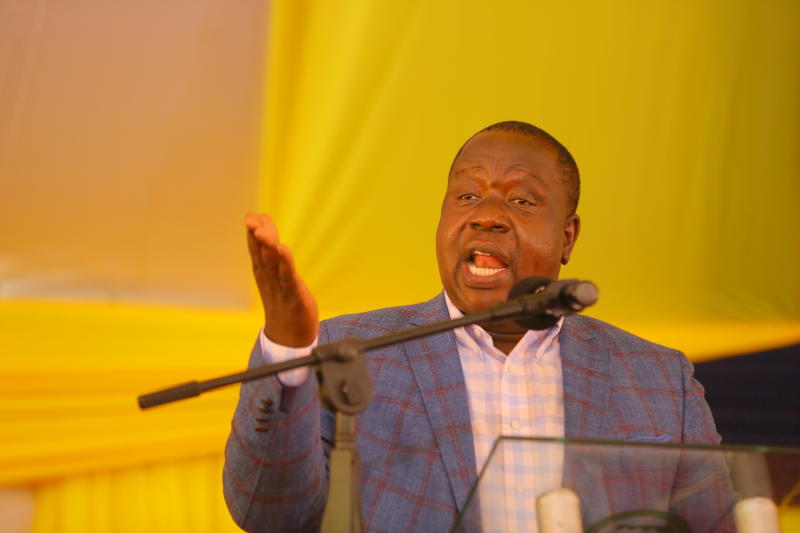Interior Cabinet Secretary Fred Matiangi at a past event. [Sammy Omingo, Standard]
×
The Standard e-Paper
Kenya’s Boldest Voice

The government has expressed concern that an unusually high number of economic criminals and their accomplices may buy their way into Parliament and county assemblies.
Interior Cabinet Secretary Dr Fred Matiang’i made the revelation at a gathering of bishops and senior clergy of the Anglican Church in Nairobi.